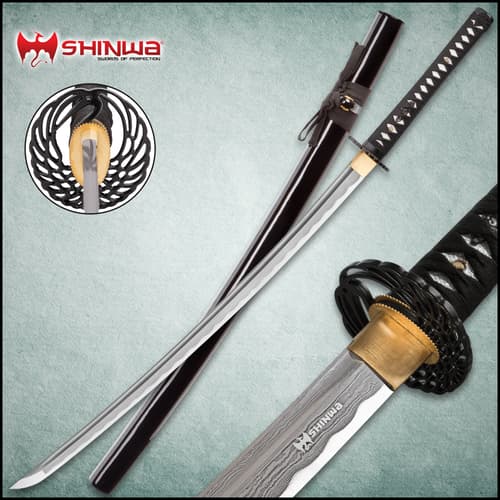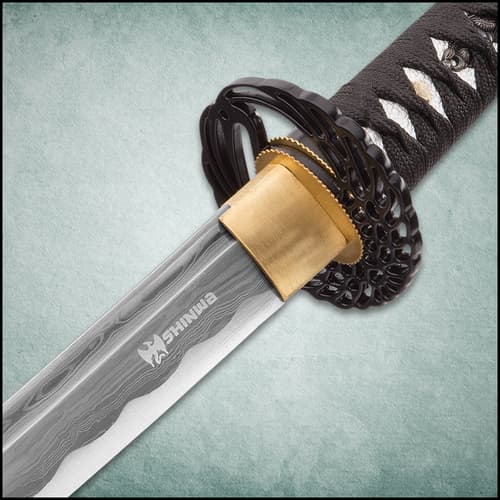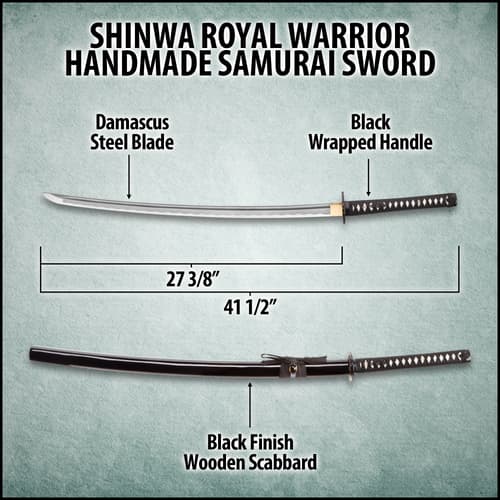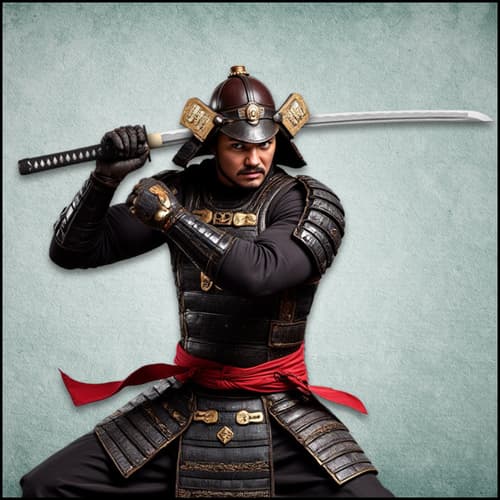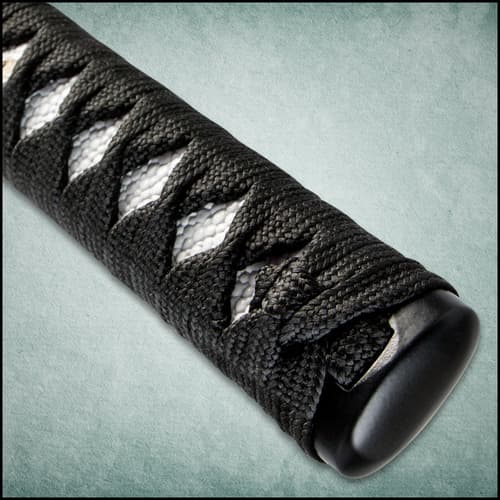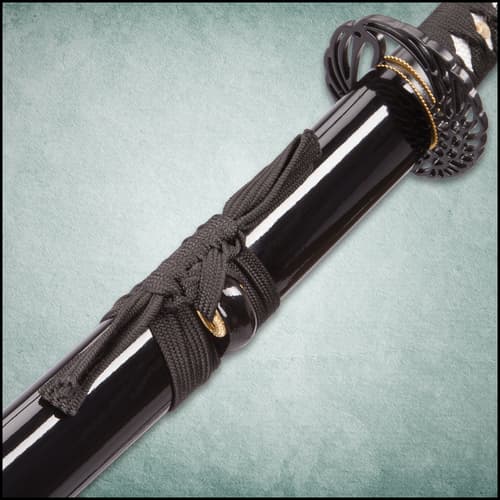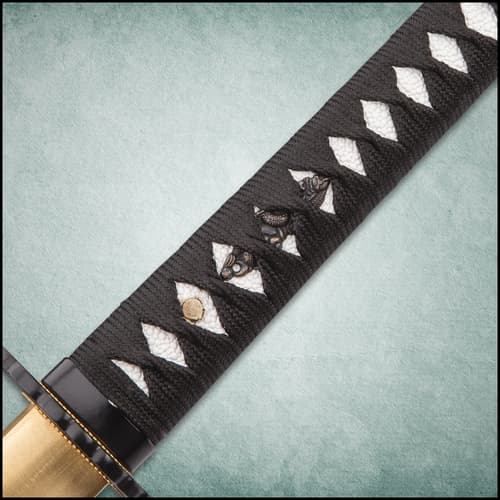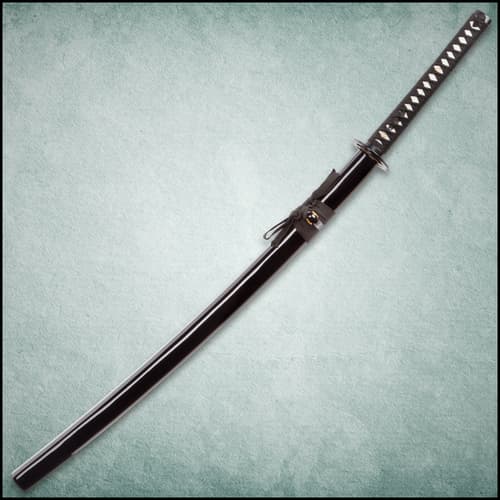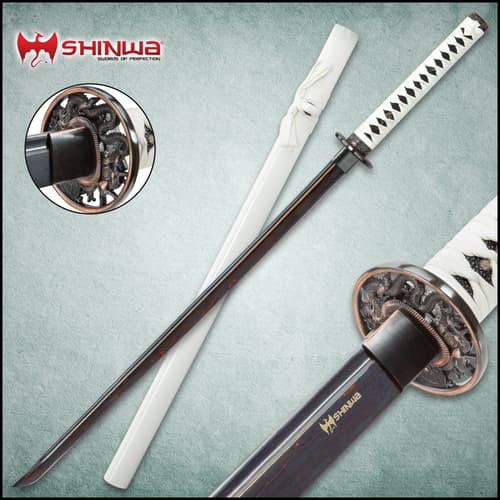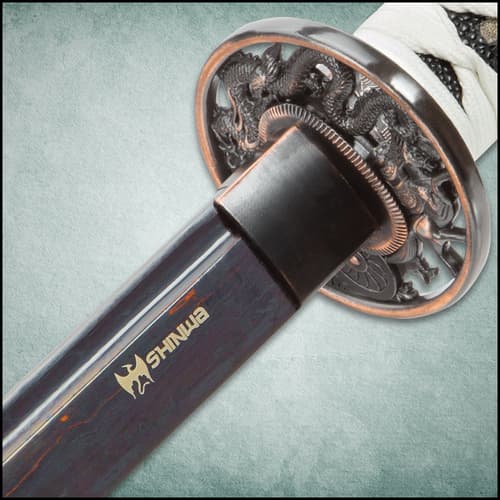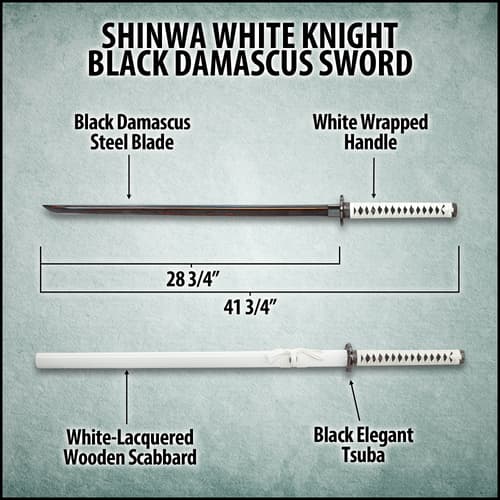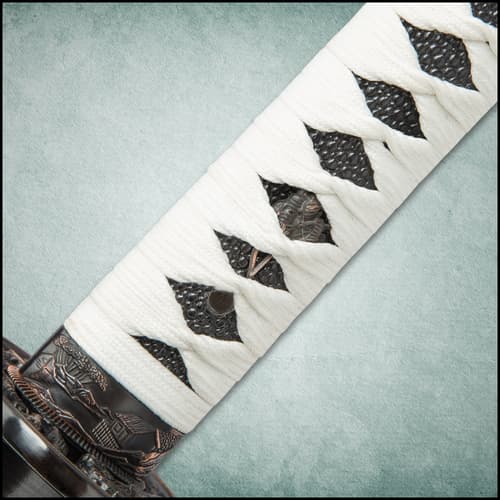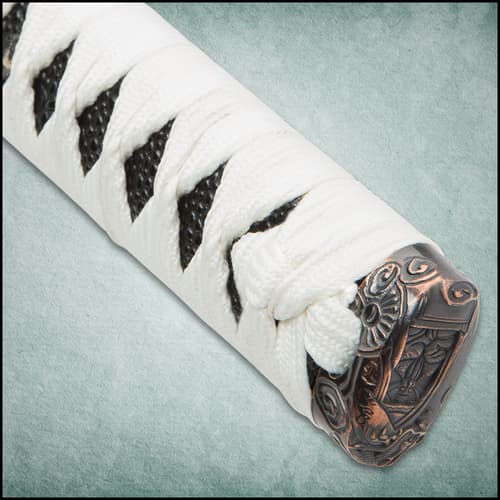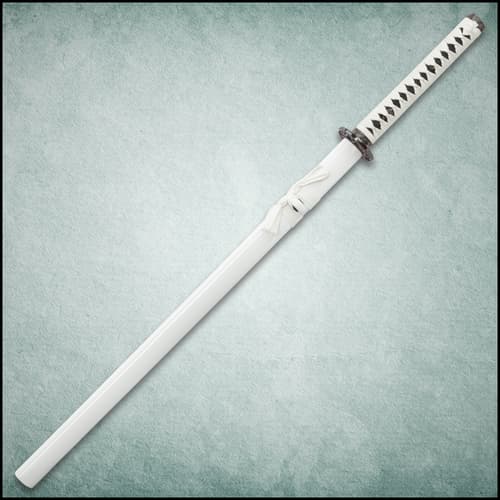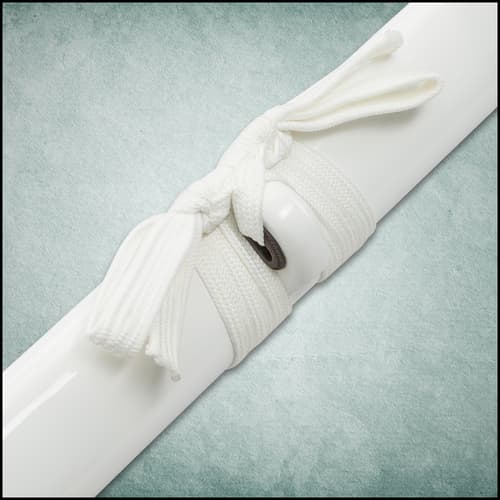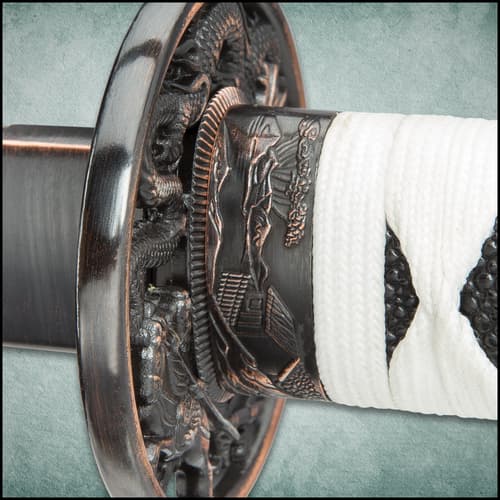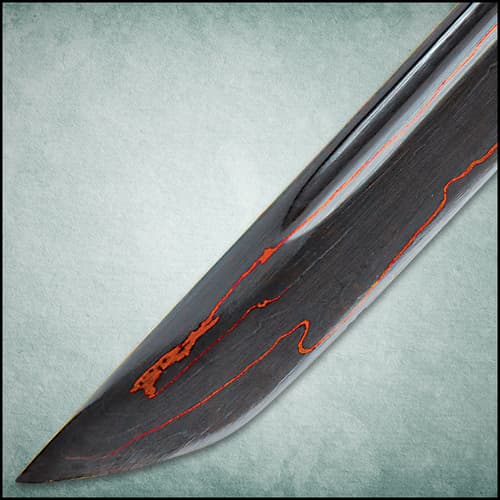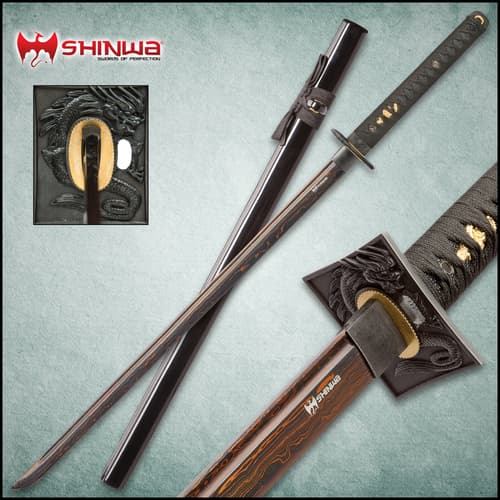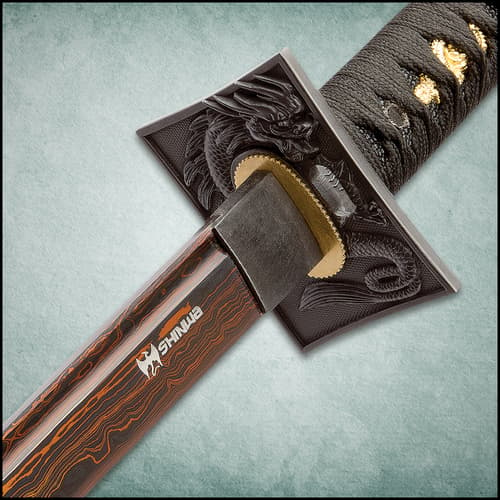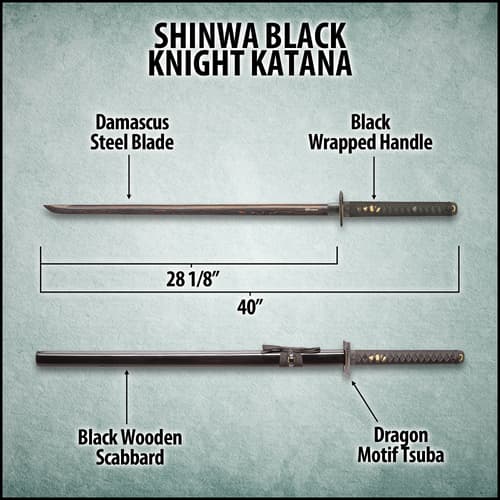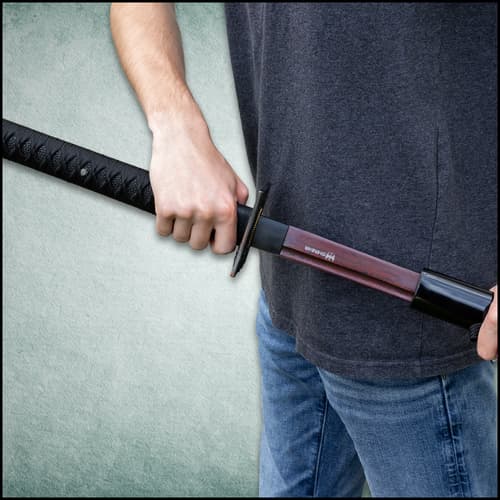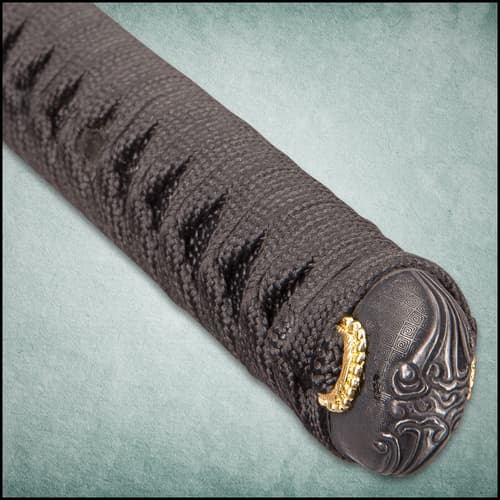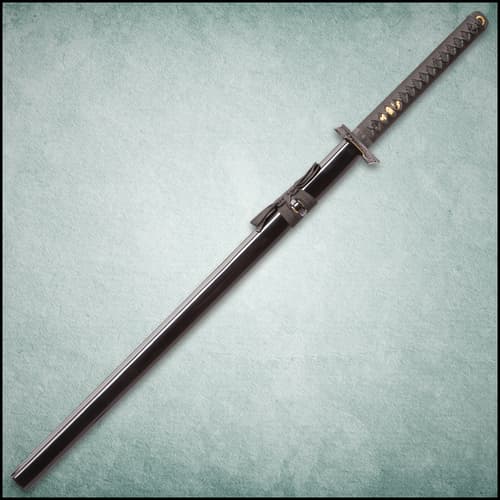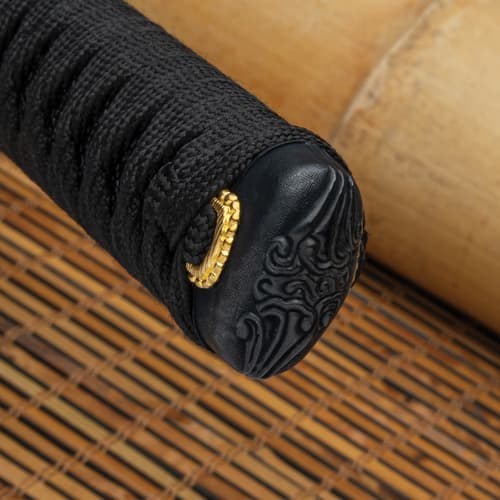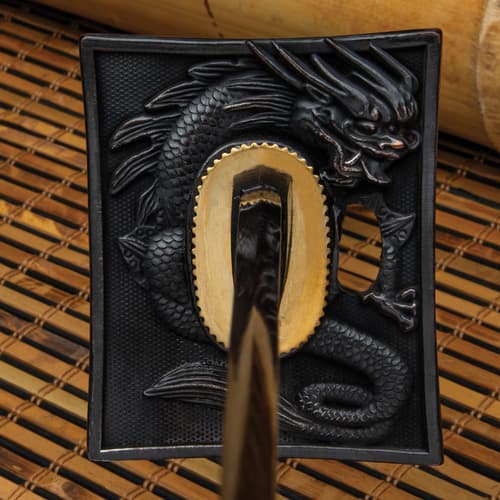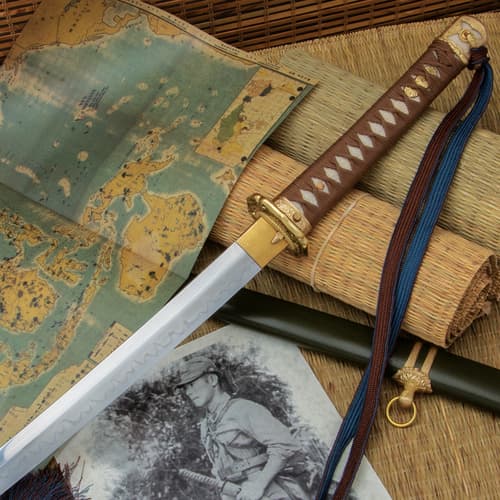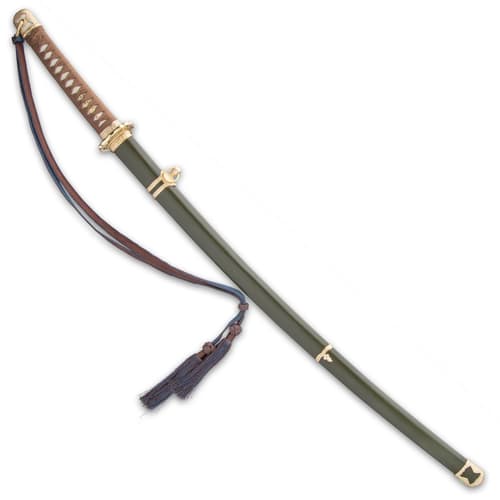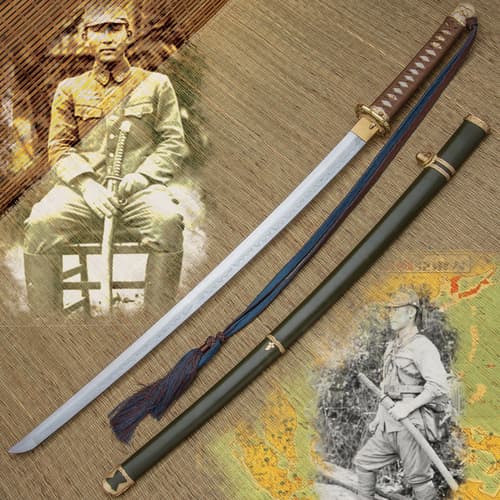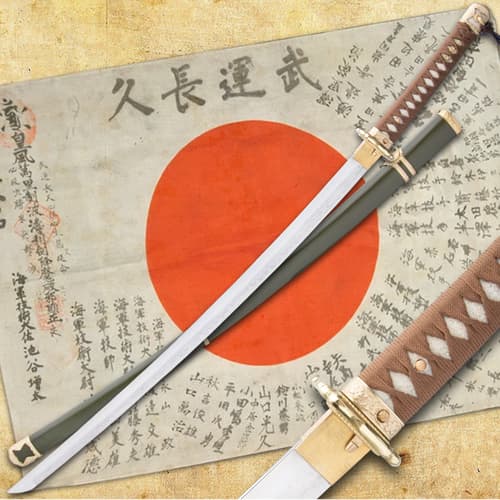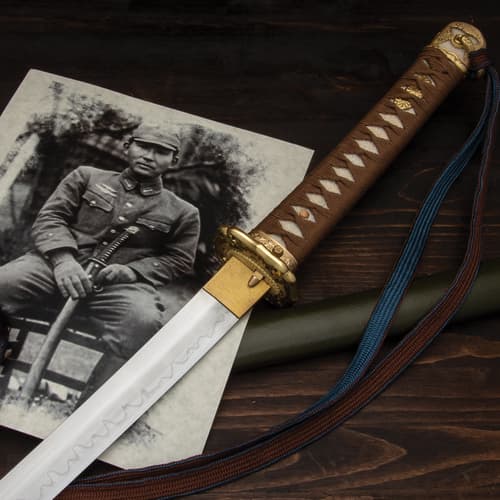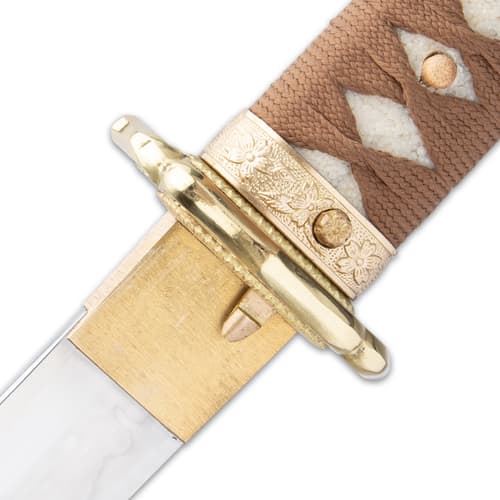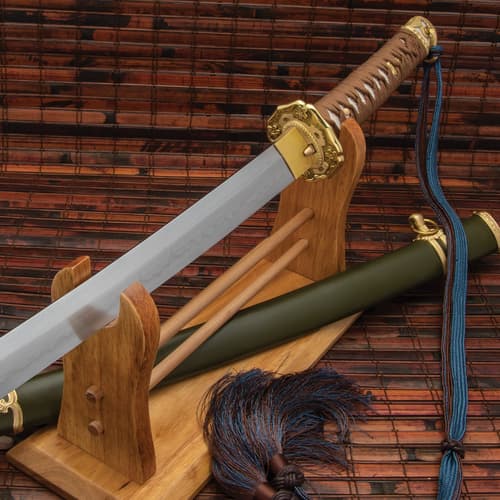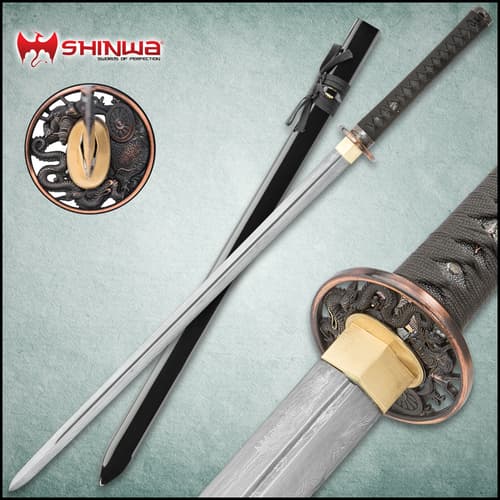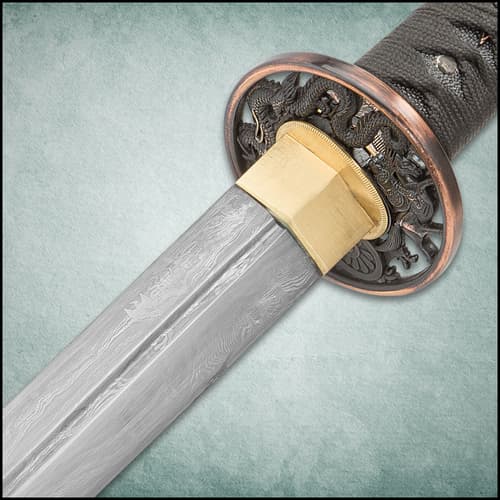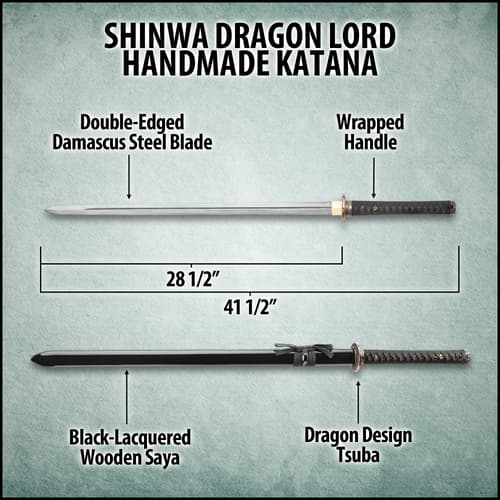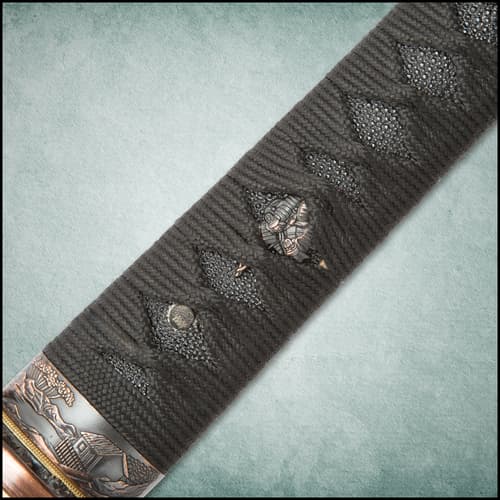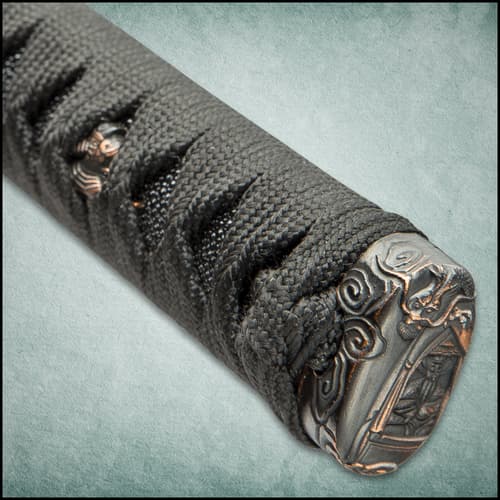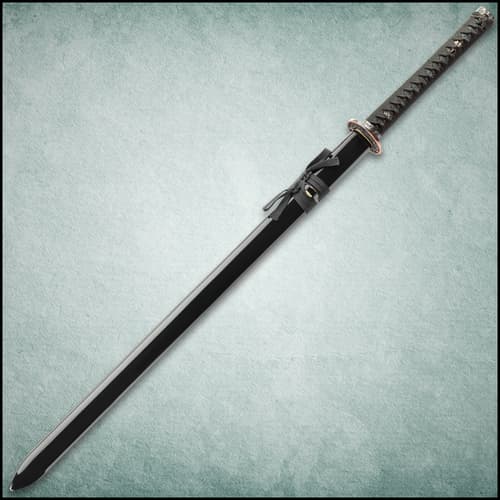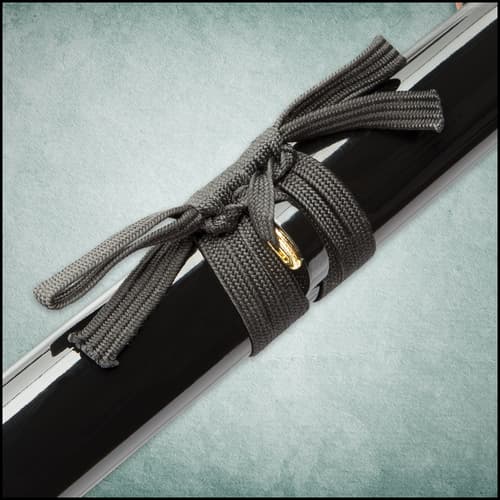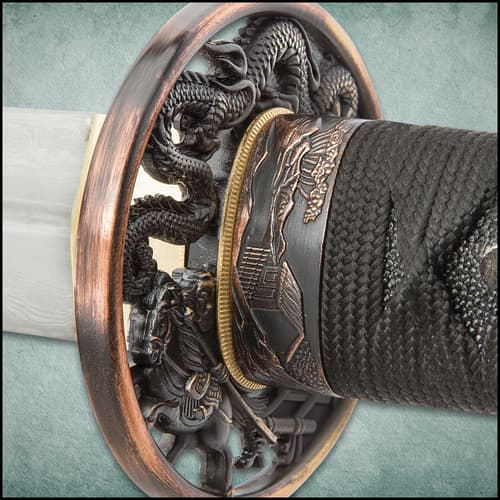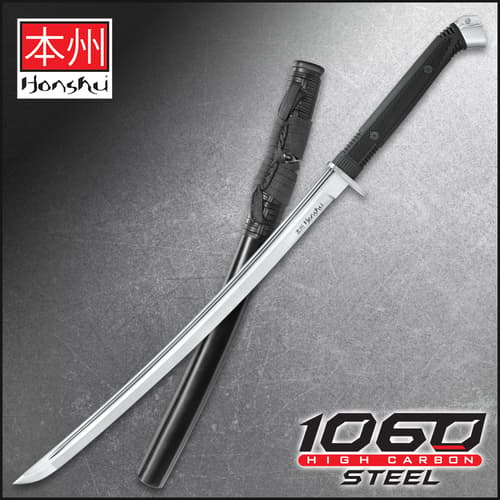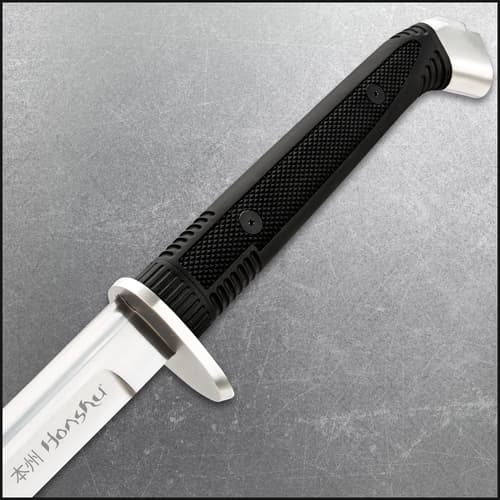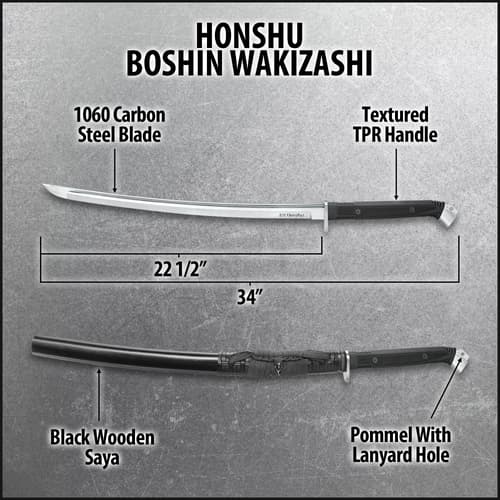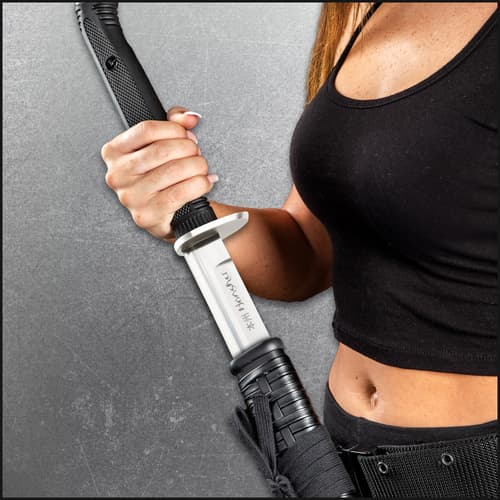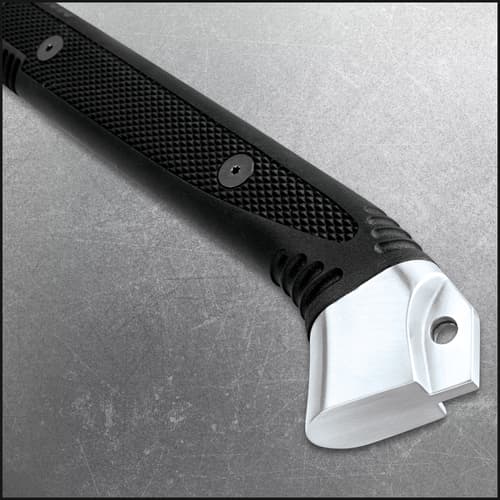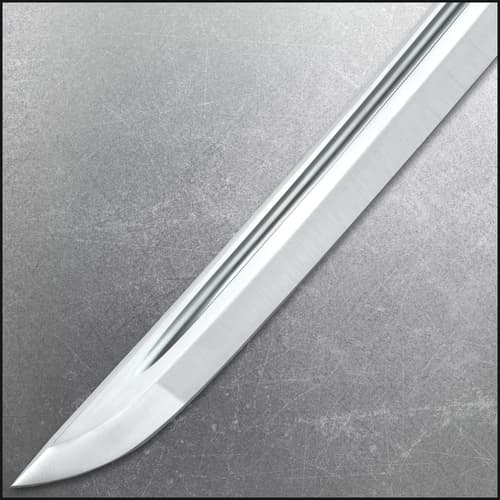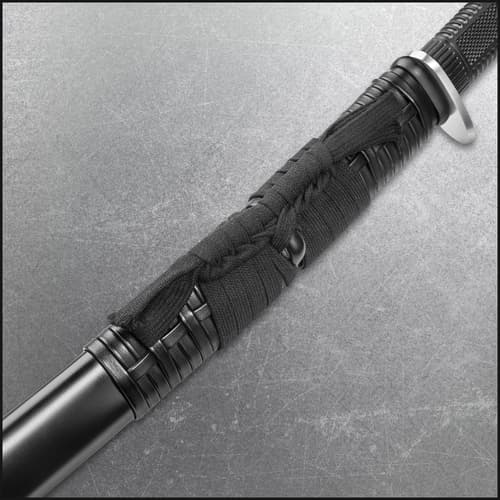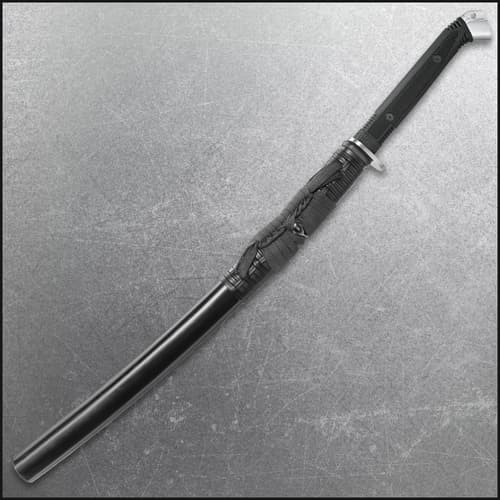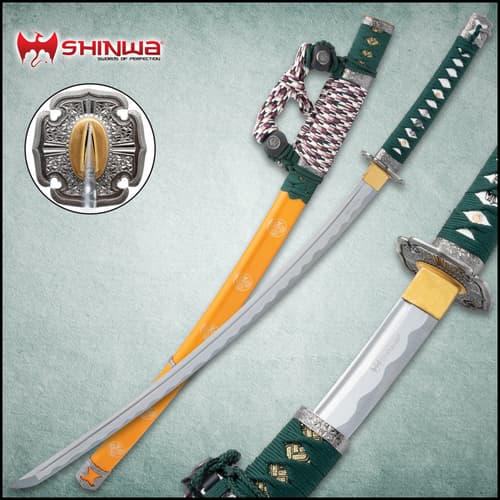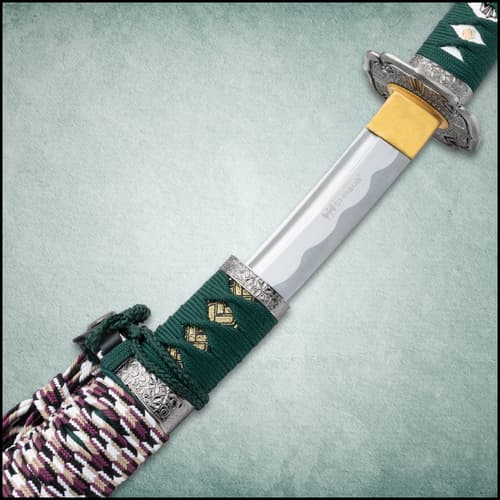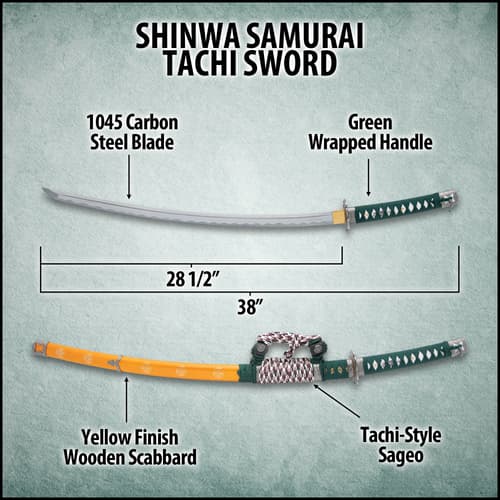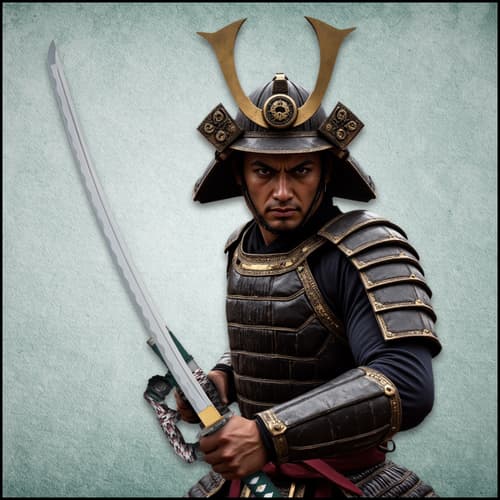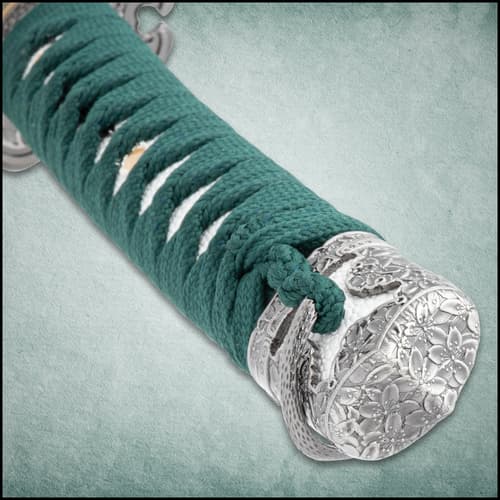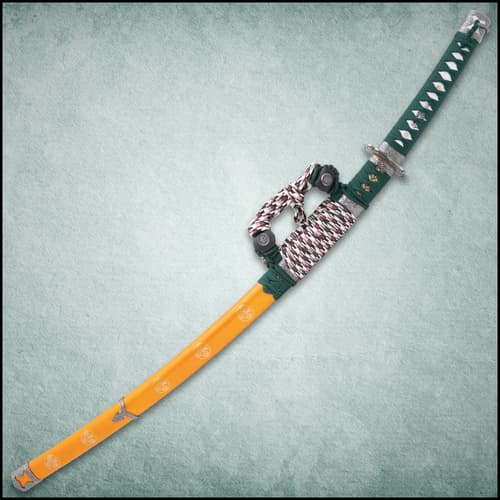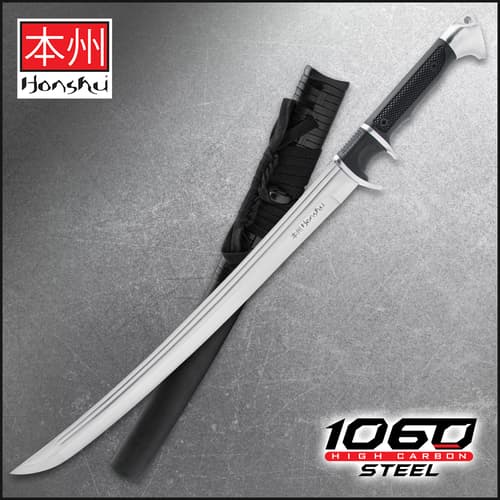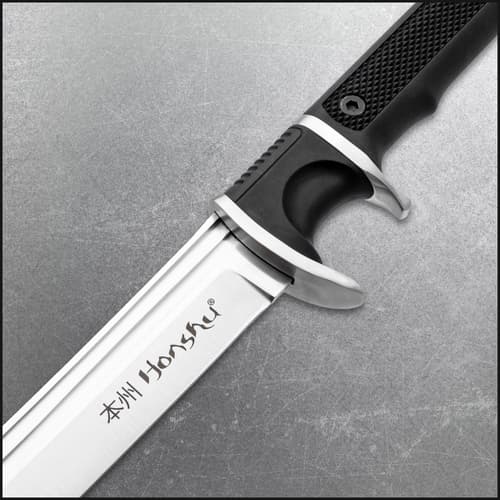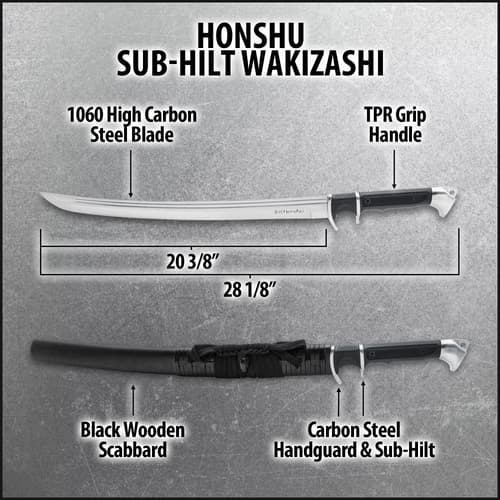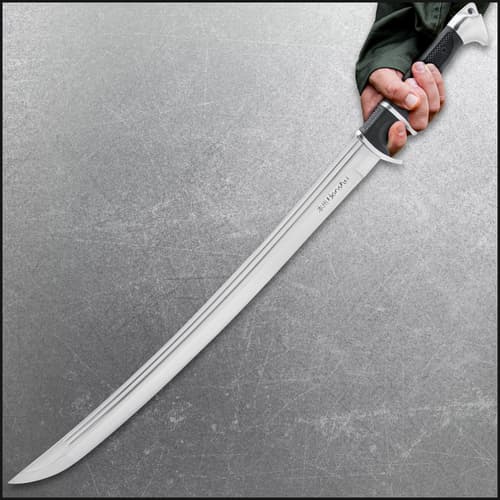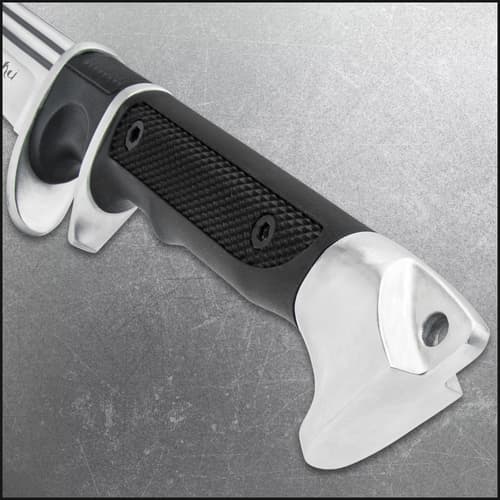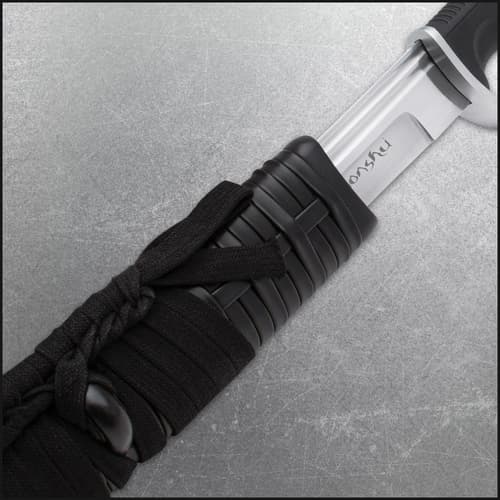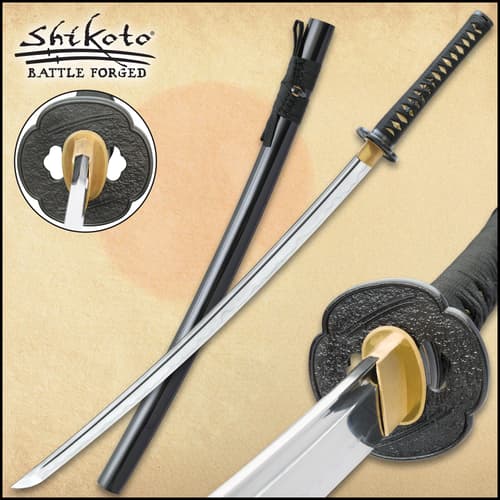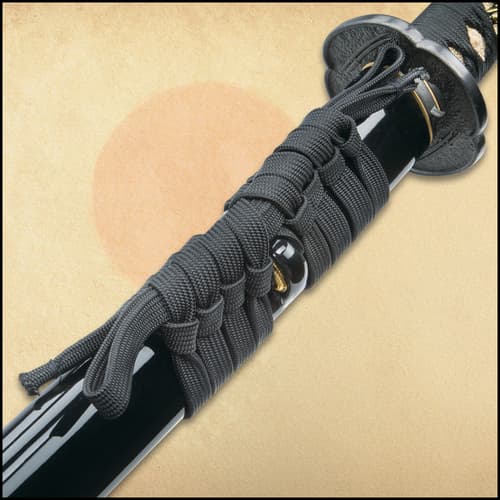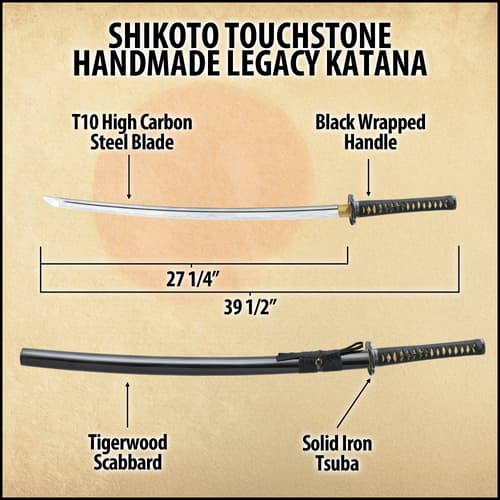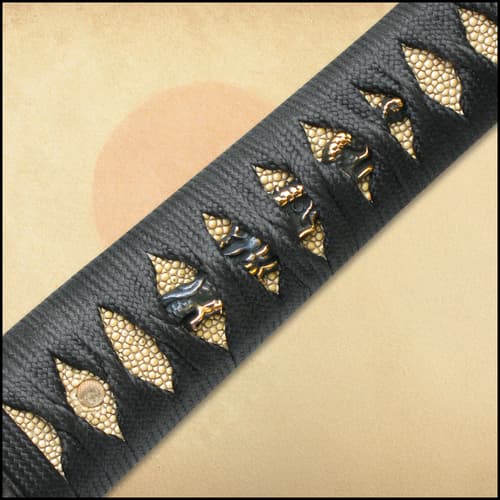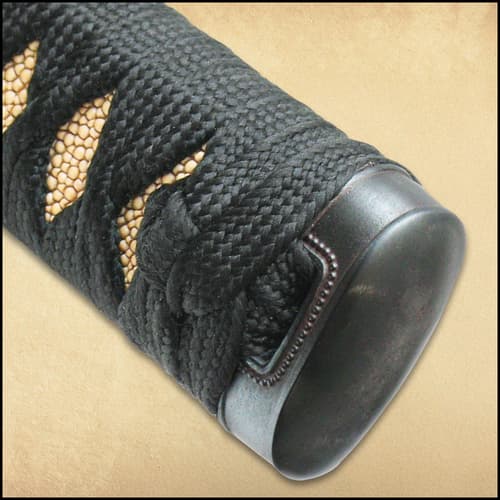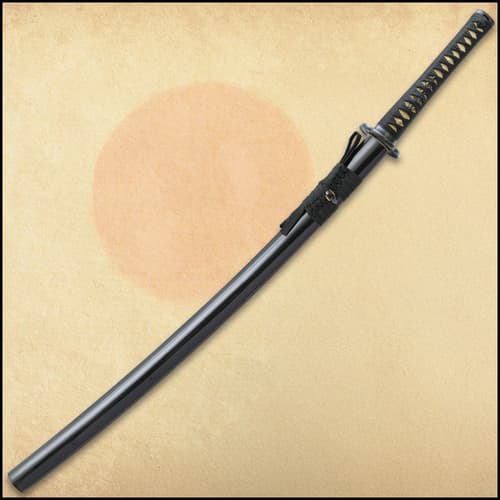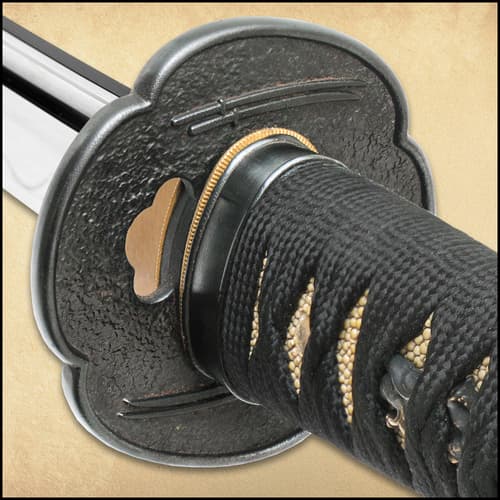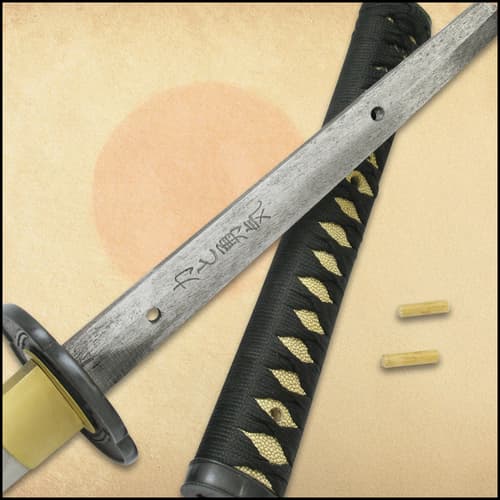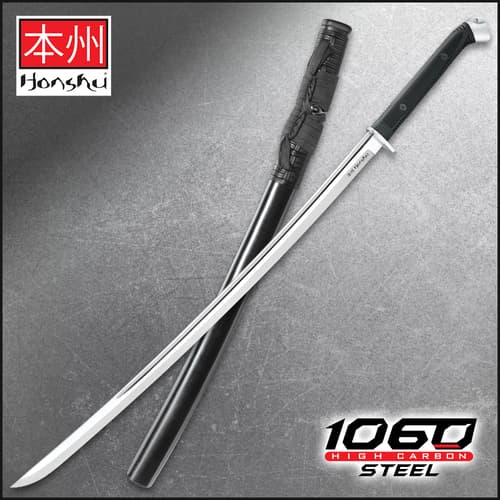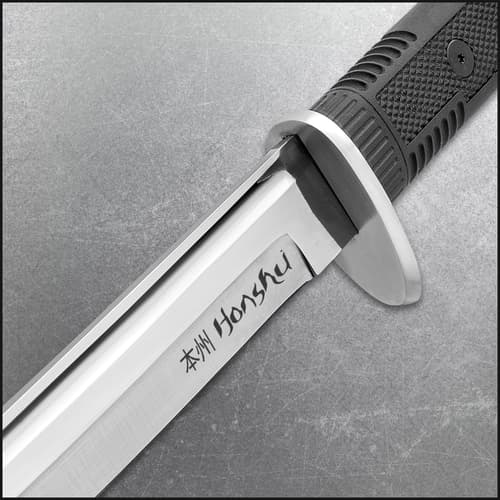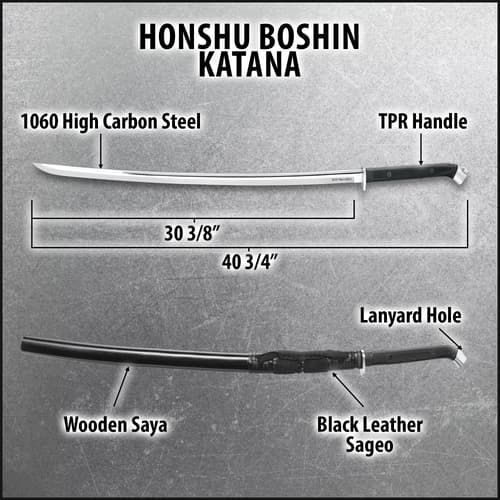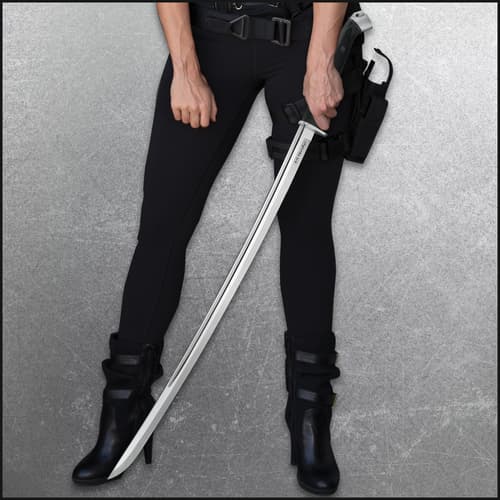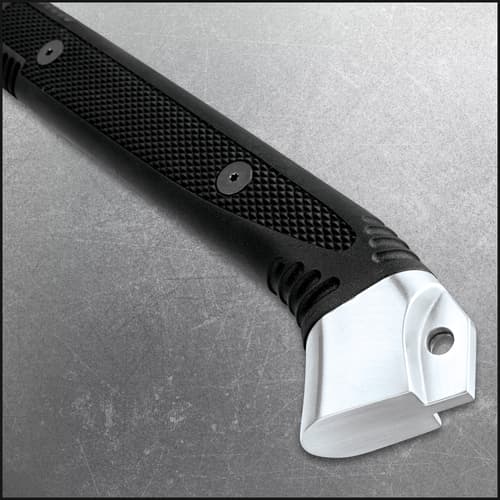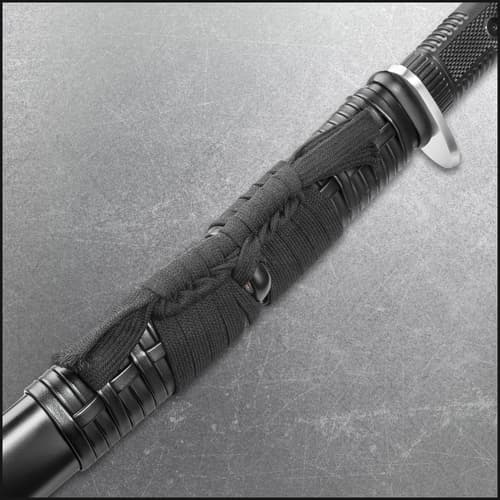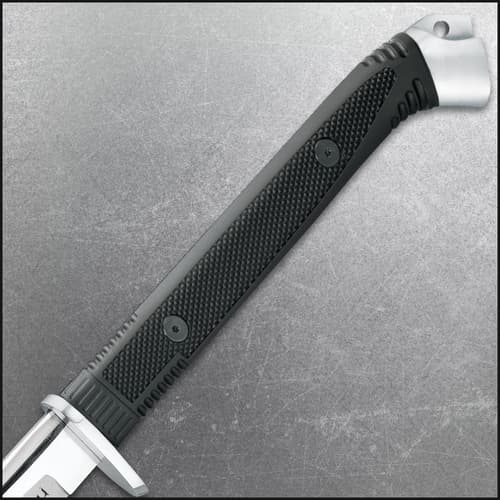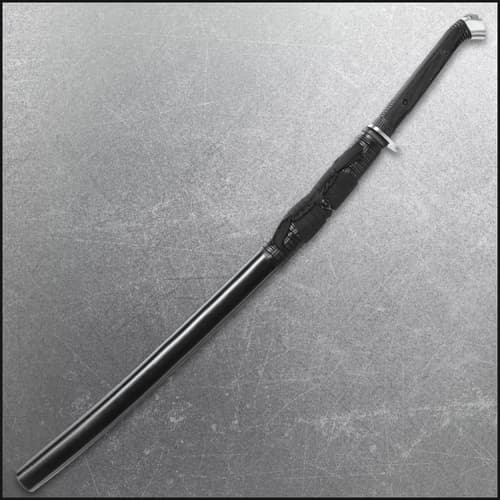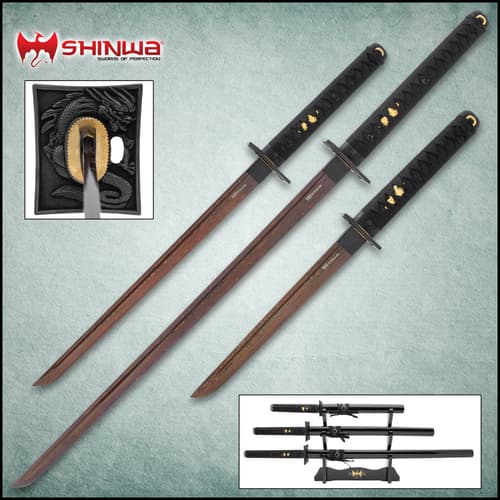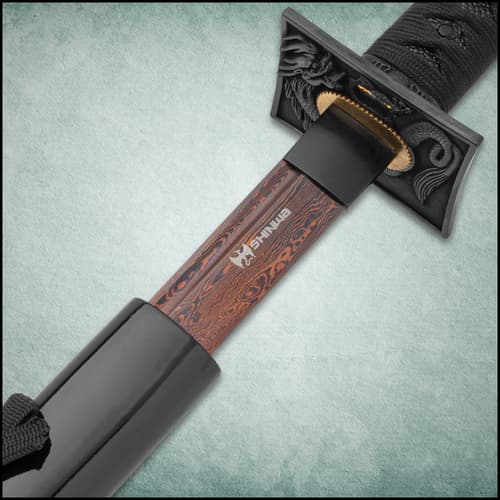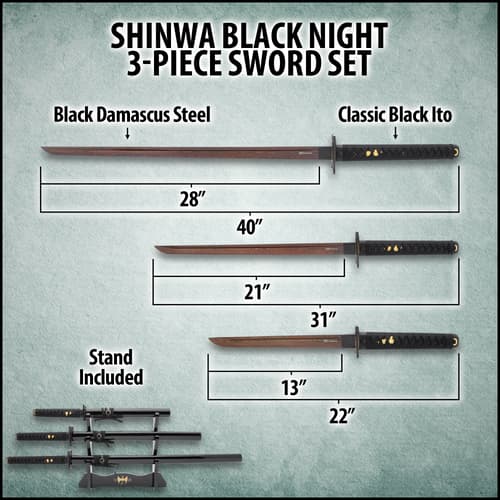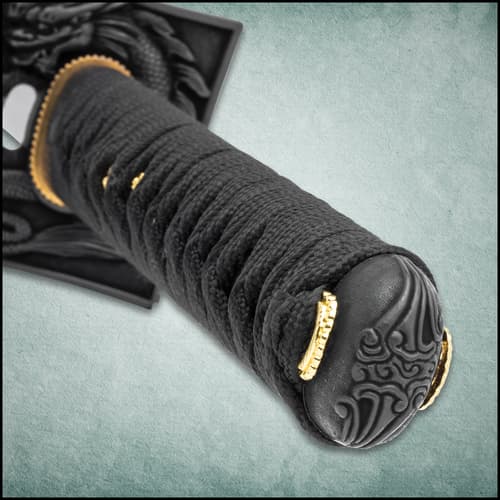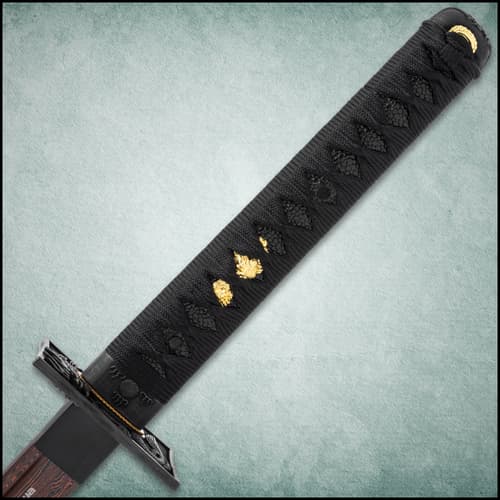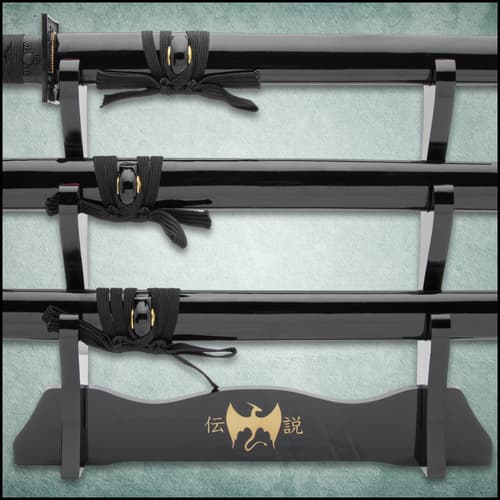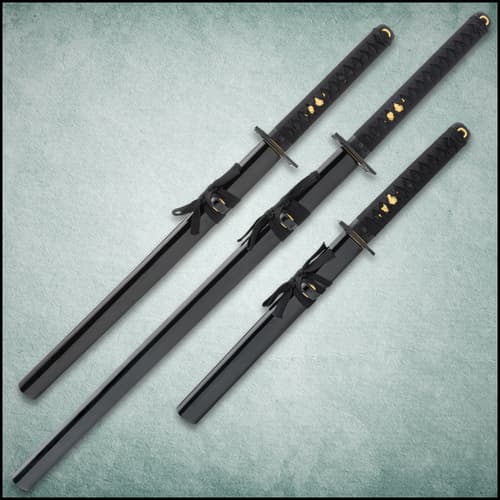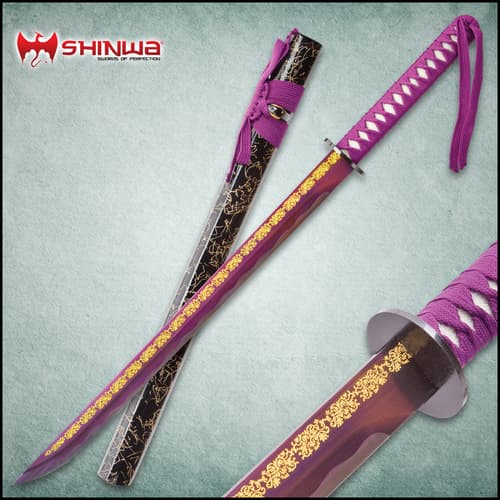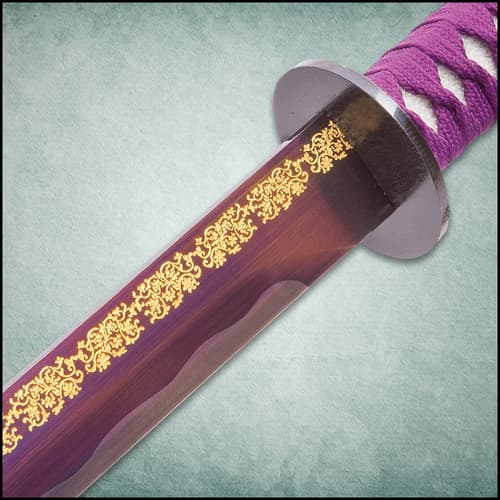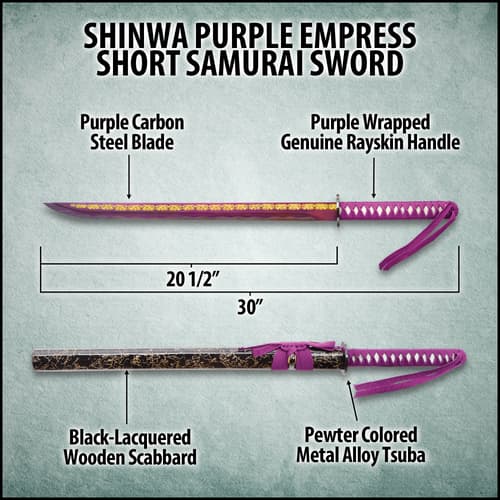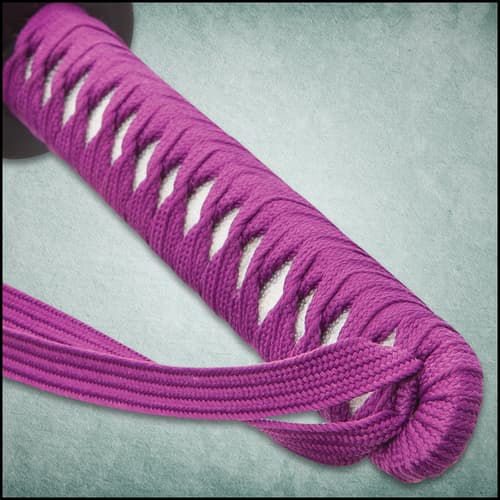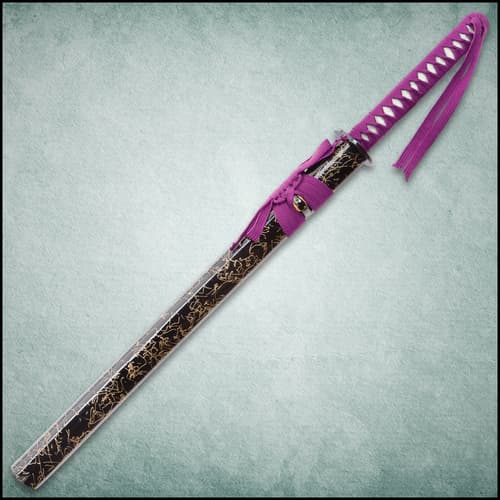Japanese Katanas
151 Results
$97.98
Price reduced from
$229.99
to
$99.99
Price reduced from
$199.99
to
$89.98
Price reduced from
$192.99
to
48809
WWII Japanese Type 98 Gunto Officer's Katana Sword And Scabbard - T10 Carbon Steel Blade, Clay-Tempered Genuine Rayskin, Brass Pommel And Guard - Length 39 3/10”
USD
4
BUDK
Swords
Japanese Swords
T10 Steel Swords
CL2
Category L2
259.99
$94.98
Price reduced from
$174.99
to
$114.99
$66.98
Price reduced from
$152.99
to
$103.99
38023
Shikoto Touchstone Handmade Legacy Katana / Samurai Sword
USD
9
Shikoto
Swords
Japanese Swords
T10 Steel Swords
CL2
Category L2
299.99
$129.99
$189.98
Price reduced from
$302.99
to
$137.98
Price reduced from
$193.99
to
JAPANESE KATANA FAQS
- What is a katana?
The katana is a Japanese sword used by Samurai, an aristocratic warrior class in feudal Japan. It has a curved, single-edged blade that is slender and a square or circular guard. The handle is long and traditionally wrapped in rayskin and then a "braid" of silk or cotton. The blade is sheathed in a scabbard, which is traditionally made of lacquered wood. This weapon was used for slashing and stabbing motions in combat, not necessarily for blocking or clashing. - What should I look for when buying a katana?
The first thing that needs to be considered is whether the sword is for display or functional use. Are you looking for a sword to use or just as a decorative item to wear or display? Once you decide on the purpose, you can explore various designs and ornamentation to find one that fits your personality, style, and budget. - What is that wavy line running down my blade?
Also known as the hamon, it’s the visual divide between the harder and softer metal of the blade. A katana’s blade needs to have a harder edge for retention and a softer spine for flexibility. This is achieved by having the two parts of the blade cool at different speeds during the forging process. - How do I take care of my katana?
Having a regular cleaning routine is key to maintaining your katana. You can purchase a traditional sword cleaning kit that contains everything you need. There are three steps: removing oil, polishing the blade, and oiling the blade. Using a sheet of rice paper from the kit or a soft cotton cloth, remove any oil from the previous maintenance. Tap the powder ball lightly against the blade about every two inches along its length. Use a fresh piece of rice paper to rub the powder over the blade, polishing it until both sides are polished and the powder is removed. Apply a few drops of oil along the blade on each side and spread it evenly with a fresh piece of rice paper. - What’s the difference between a katana and a wakizashi?
Samurai warriors typically carried two swords as part of their dress. The katana was their primary weapon for battle, while the wakizashi was used for close-quarters combat. The wakizashi is built like the katana but is shorter in length, serving as a companion sword.

